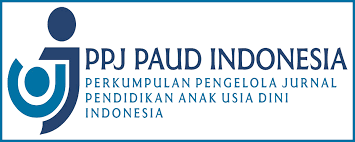| ..:: MENU UTAMA ::.. |
| ONLINE SUBMISSION |
| PEER REVIEW PROCESS |
| OPEN ACCESS POLICY |
| EDITORIAL BOARD |
| PUBLICATION ETHICS |
| AUTHOR GUIDLINES |
| INDEXING |
Publication Ethics
ETIKA PUBLIKASI
Publikasi artikel di jurnal peer review merupakan model penting untuk jurnal kami "Thufuli: Jurnal Pendidikan Islam Anak Usia Dini". Penting untuk menyepakati standar perilaku etis yang diharapkan bagi semua pihak yang terlibat dalam tindakan penerbitan: penulis, editor jurnal, peer reviewer, dan penerbit.
TUGAS EDITOR
Keputusan Publikasi
Editor "Thufuli: Jurnal Pendidikan Islam Anak Usia Dini" bertanggung jawab untuk memutuskan artikel mana yang diserahkan ke jurnal yang harus diterbitkan. Editor dapat dipandu oleh kebijakan dewan editorial jurnal dan dibatasi oleh persyaratan hukum yang berlaku terkait pencemaran nama baik, pelanggaran hak cipta, dan plagiarisme. Editor dapat berunding dengan editor atau reviewer lain dalam mengambil keputusan ini.
Fair Play
Seorang editor setiap saat mengevaluasi naskah berdasarkan konten intelektualnya tanpa memandang ras, jenis kelamin, orientasi seksual, keyakinan agama, asal etnis, kewarganegaraan, atau filosofi politik penulis. Bagian penting dari tanggung jawab untuk mengambil keputusan yang adil dan tidak memihak adalah dengan menjunjung tinggi prinsip independensi dan integritas editorial. Editor mempunyai posisi yang kuat dalam mengambil keputusan atas publikasi, sehingga sangat penting bahwa proses ini dilakukan seadil-adilnya dan tidak memihak.
Kerahasiaan
Editor dan staf editorial mana pun tidak boleh mengungkapkan informasi apa pun tentang naskah yang dikirimkan kepada siapa pun selain penulis terkait, reviewer, calon reviewer, penasihat editorial lainnya, dan penerbit, sebagaimana mestinya.
Tinjauan
Editor Naskah harus memastikan bahwa setiap naskah pada awalnya dievaluasi oleh editor untuk orisinalitasnya. Editor harus mengatur dan menggunakan peer review secara adil dan bijaksana. Editor harus menjelaskan proses peer review mereka dalam informasi untuk penulis dan juga menunjukkan bagian mana dari jurnal yang ditinjau oleh rekan sejawat. Editor harus menggunakan peer reviewer yang sesuai untuk makalah yang dipertimbangkan untuk dipublikasikan dengan memilih orang-orang yang memiliki keahlian memadai dan menghindari orang-orang yang memiliki konflik kepentingan.
Pengungkapan dan konflik kepentingan
Materi yang tidak dipublikasikan dan diungkapkan dalam naskah yang dikirimkan tidak boleh digunakan dalam penelitian editor sendiri tanpa izin tertulis dari penulis.
TUGAS PENINJAU
Kontribusi terhadap Keputusan Editorial
Tinjauan sejawat membantu editor dalam membuat keputusan editorial dan melalui komunikasi editorial dengan penulis juga dapat membantu penulis dalam memperbaiki makalah.
Ketepatan
Setiap wasit terpilih yang merasa tidak memenuhi syarat untuk meninjau penelitian yang dilaporkan dalam naskah atau mengetahui bahwa peninjauan cepat tidak mungkin dilakukan harus memberi tahu editor dan meminta izin dari proses peninjauan.
Kerahasiaan
Setiap naskah yang diterima untuk ditinjau harus diperlakukan sebagai dokumen rahasia. Dokumen tersebut tidak boleh diperlihatkan atau didiskusikan dengan orang lain kecuali atas izin editor.
Standar Objektivitas
Tinjauan harus dilakukan secara obyektif. Kritik pribadi terhadap penulis tidak pantas. Wasit harus mengungkapkan pandangannya dengan jelas disertai argumen yang mendukung.
Pengakuan Sumber
Peninjau harus mengidentifikasi karya terbitan relevan yang belum dikutip oleh penulis. Pernyataan apa pun yang menyatakan observasi, derivasi, atau argumen telah dilaporkan sebelumnya harus disertai dengan kutipan yang relevan. Seorang reviewer juga harus meminta perhatian editor jika ada kesamaan substansial atau tumpang tindih antara naskah yang sedang dipertimbangkan dan makalah lain yang diterbitkan yang mereka ketahui secara pribadi.
Pengungkapan dan Benturan Kepentingan
Informasi atau gagasan istimewa yang diperoleh melalui tinjauan sejawat harus dijaga kerahasiaannya dan tidak digunakan untuk keuntungan pribadi. Peninjau tidak boleh mempertimbangkan naskah yang memiliki konflik kepentingan yang disebabkan oleh hubungan atau koneksi kompetitif, kolaboratif, atau lainnya dengan penulis, perusahaan, atau lembaga mana pun yang terkait dengan makalah tersebut.
TUGAS PENULIS
Standar Pelaporan
Penulis laporan penelitian asli harus menyajikan laporan akurat mengenai pekerjaan yang dilakukan serta diskusi obyektif mengenai signifikansinya. Data yang mendasari harus disajikan secara akurat dalam makalah. Sebuah makalah harus berisi detail dan referensi yang cukup sehingga memungkinkan orang lain untuk mereplikasi karya tersebut. Pernyataan palsu atau sengaja tidak akurat merupakan perilaku tidak etis dan tidak dapat diterima.
Akses dan Retensi Data
Penulis diminta untuk memberikan data mentah sehubungan dengan makalah untuk tinjauan editorial, dan harus bersiap untuk memberikan akses publik terhadap data tersebut (konsisten dengan Pernyataan ALPSP-STM tentang Data dan Basis Data), jika memungkinkan, dan dalam keadaan apa pun harus bersiap untuk menyimpan data tersebut untuk jangka waktu yang wajar setelah publikasi.
Orisinalitas dan Plagiarisme
Para penulis harus memastikan bahwa mereka telah menulis seluruh karya asli, dan jika penulis telah menggunakan karya dan/atau kata-kata orang lain maka karya tersebut telah dikutip atau dikutip dengan tepat.
Publikasi Berganda, Berlebihan, atau Bersamaan. Seorang penulis secara umum tidak boleh menerbitkan manuskrip yang menjelaskan penelitian yang pada dasarnya sama di lebih dari satu jurnal atau publikasi utama. Mengirimkan naskah yang sama ke lebih dari satu jurnal secara bersamaan merupakan perilaku penerbitan yang tidak etis dan tidak dapat diterima.
Pengakuan terhadap Sumber
Pengakuan yang layak atas karya orang lain harus selalu diberikan. Penulis harus mengutip publikasi yang berpengaruh dalam menentukan sifat karya yang dilaporkan.
Kepengarangan Makalah Kepenulisan
Penulis harus dibatasi pada mereka yang telah memberikan kontribusi signifikan terhadap konsepsi, desain, pelaksanaan, atau interpretasi penelitian yang dilaporkan. Semua pihak yang telah memberikan kontribusi signifikan harus dicantumkan sebagai rekan penulis. Jika ada orang lain yang telah berpartisipasi dalam aspek substantif tertentu dari proyek penelitian, mereka harus diakui atau dicantumkan sebagai kontributor. Penulis koresponden harus memastikan bahwa semua rekan penulis yang sesuai dan tidak ada rekan penulis yang tidak tepat disertakan dalam makalah, dan bahwa semua rekan penulis telah melihat dan menyetujui versi akhir makalah serta menyetujui penyerahannya untuk dipublikasikan.
Pengungkapan dan Konflik Kepentingan
Semua penulis harus mengungkapkan dalam naskahnya setiap konflik kepentingan finansial atau konflik kepentingan substantif lainnya yang mungkin ditafsirkan mempengaruhi hasil atau interpretasi naskah mereka. Semua sumber dukungan keuangan untuk proyek tersebut harus diungkapkan.
Kesalahan mendasar dalam karya yang diterbitkan
Ketika seorang penulis menemukan kesalahan atau ketidakakuratan yang signifikan dalam karyanya yang diterbitkan, maka merupakan kewajiban penulis untuk segera memberi tahu editor jurnal atau penerbit dan bekerja sama dengan editor untuk mencabut atau memperbaiki makalah tersebut.






